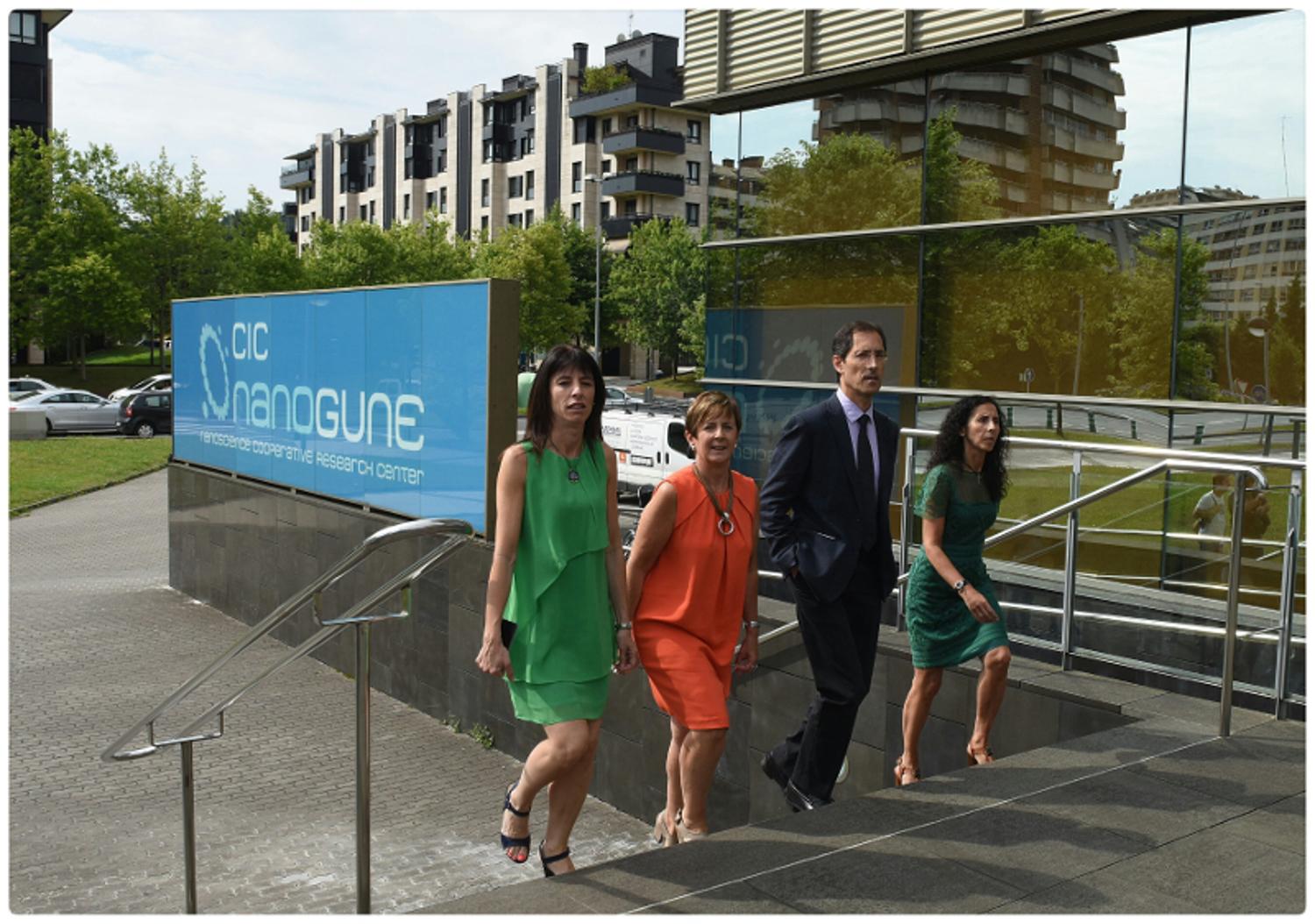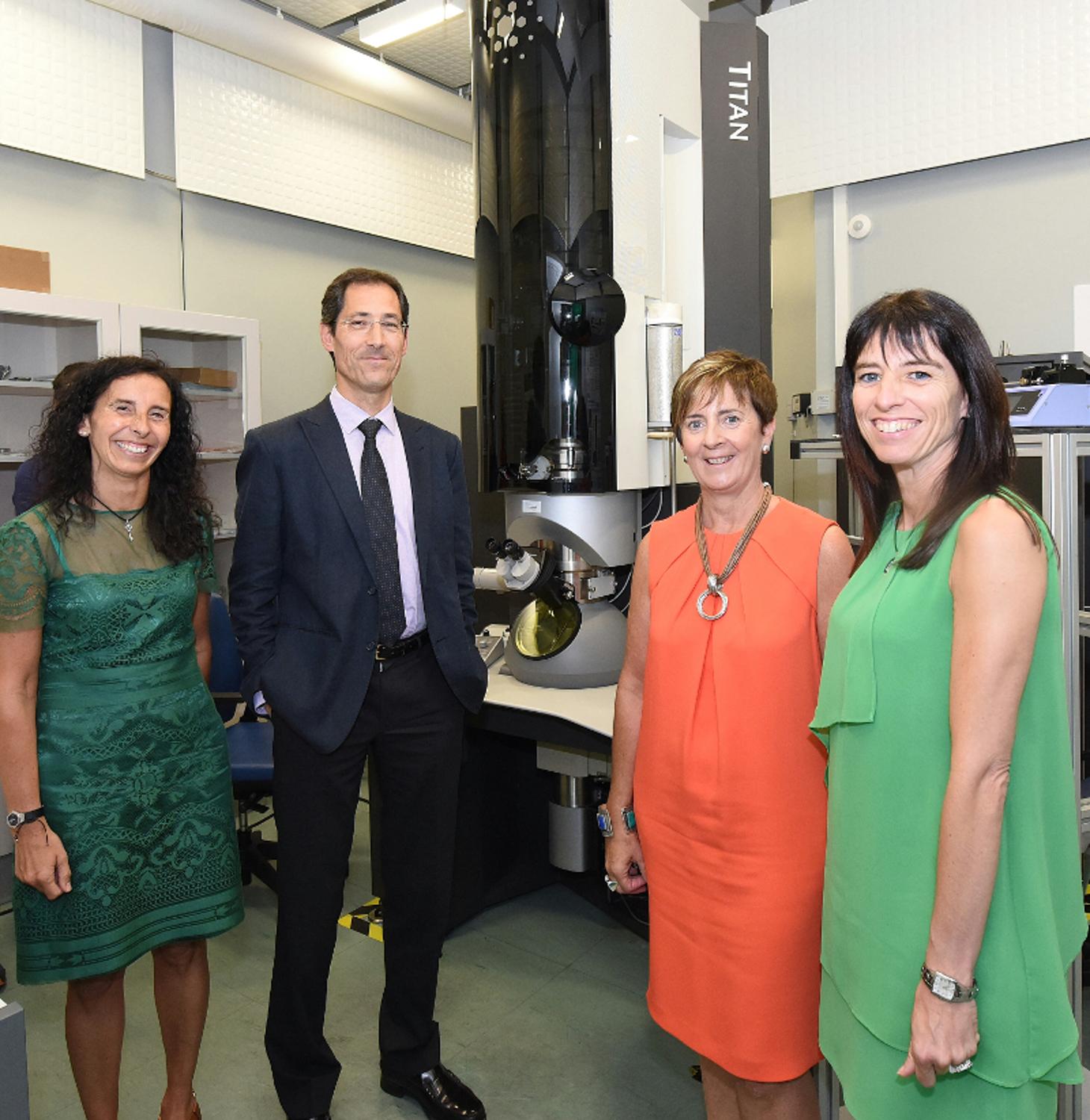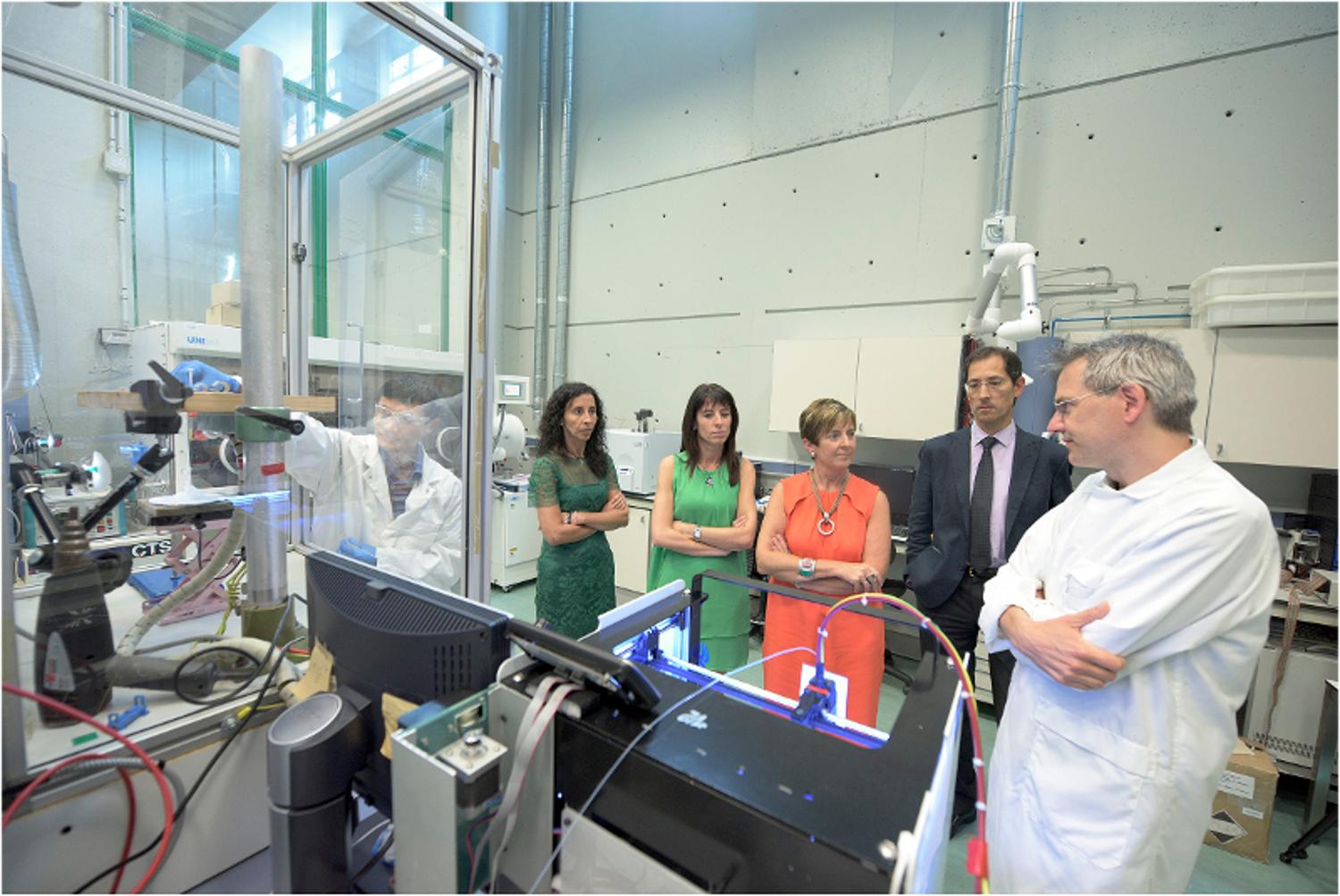The Basque Minister of Economic Development visits nanoGUNE
Members of the Basque Government have been visiting nanoGUNE today, and have presented the new ELKARTEK Program that will fund collaborative research in strategic areas for the Basque Country. The delegation has been formed by the Basque Minister of Economic Development and Competitiveness, Arantxa Tapia, the Deputy Minister of Technology, Innovation and Competitiveness, Estíbaliz Hernáez, and the Director of Technology of the Basque Government, Leyre Bilbao.

The Minister has valued the experience and contribution of nanoGUNE, and has emphasized the governments commitment to guide the Science and Technology System towards business' needs. In the press conference that has taken place before the visit, she has also stressed the need to recognize the career of research people.
The director of nanoGUNE, Jose Maria Pitarke, has summarized the successful results of the center, which are due, in large part, to the combination of an exceptional infrastructure with leading researchers (all Ikerbasque) that guide a research team formed by more than 70 scientist (most of them in rotation and coming from 25 different countries). "This research team -he said-, in collaboration with outstanding international researchers, have achieved extraordinary results in fundamental research, recognized and used by researchers all over the world". Thanks to all this, nanoGUNE has the good position to address technology transfer and, particularly, the creation of new science and technology based companies, in extremely competitive fields, such as graphene.


In six years, nanoGUNE has created four companies related with high quality graphene production (Graphenea), atomic scale simulation services (Simune), coatings for materials on demand (Ctech-nano), and ultraeficient paleoenzimes for biofuel production (Evolgene). In 2015, a new line has been open with the objective of creating a new company (Prospero) that will commercialize detectors for mass spectrometry. Moreover, nanoGUNE is starting to commercialize "nanofibers on demand" (for application in tissue regeneration, biotechnology, food industry, textile, plastics, filters, etc.) and a very special 3D printer (Nanoburu), that will enable the user to create its own nanofibers. The Basque center for nanoscience has also been successful in licensing its patents, the last one to the Danish company BluSense. This company has used the patented technology in a commercial portable medical device for analysis that, connected to a mobile phone, is able to diagnose various diseases in just five minutes from a single drop of blood.
In this context, MIN Tapia has presented the new ELKARTEK program, worth 20 M euros, to fund fundamental and industrial research driven by the Basque Science, Technology and Innovation Network. This program includes three categories: Collaborative Fundamental Research Projects, Research Projects with High Industrial Potential, and Complementary Actions of Special Interest.
The ELKARTEK program replaces the Etortek projects of the Basque Government, within which nanoGUNE was already carrying out business oriented collaborative research. The last project (currently in place) puts together the capacities of nanoGUNE, Tecnalia and IK4 and is oriented to give answers to specific needs of some Basque companies through fundamental research. The project seeks to exploit the potential of nanoscience and nanotechnology to address corrosion and fouling prevention in marine and industrial environments.
